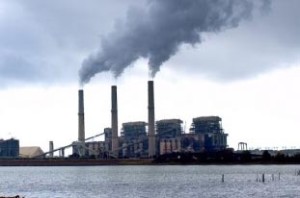
Texas Director Adrian Shelley speaking at a VW Settlement community engagement meeting in Fort Worth.
Volkswagen’s emissions cheating scandal led to a $14.7 billion dollar settlement. Basically, what Volkswagen did was install what are called “defeat devices” which were programmed to run differently during emissions tests so that they appeared to be much less polluting than they actually are. In some cases, NOx (nitrogen oxides), which is not only harmful but is also a precursor to ground-level ozone, was up to 40 times higher than what the cheating emissions tests revealed!
By cheating on emissions tests, Volkswagen harmed public health, causing at least 59 premature deaths and over $450 million in health and social costs (Barrett, 2015). The settlement provides Volkswagen with a chance to compensate owners of vehicles impacted by the defeat devices, mitigate some of the harm done, and reduce future harm using zero emissions technology.
Details of the Settlement
The Volkswagen Settlement is essentially divided into three parts: a personal vehicle buyback program, an environmental mitigation program to reduce the harm done, and a zero emissions vehicle investment commitment to prevent more harm and promote zero emissions technology.
More information on the personal vehicle buyback program can be found at VW’s settlement website http://www.VWCourtSettlement.com. If you have an eligible vehicle, you may also be eligible for additional funds through the Bosch VW Settlement (https://www.boschvwsettlement.com/en/Home/FAQ).
The Environmental Mitigation Trust will be administered at the state level and will fund projects to upgrade and replace dirty diesel engines. Texas will receive $209 million dollars. Once a beneficiary is designated, projects will be determined. We are collecting feedback on these projects, discussed below.
The third fund is the Zero Emissions Vehicle Investment Commitment, also known as Electrify America. VW will be allocating $2 billion dollars toward zero emissions infrastructure and educational campaigns to promote their use. The City of Houston is among the first round of cities to be supported by this fund.
Community Engagement
Public Citizen, alongside Houston coalition partners Coalition of Community Organizations, t.e.j.a.s., and Air Alliance Houston hosted informational meetings regarding the Volkswagen Settlement at Austin High School in Houston and at the Houston Area Research Center in the Woodlands in May and June. Given that both the Houston area and the Dallas-Fort Worth area are in non-attainment for ozone and that this settlement could help improve air quality in both regions, we hosted additional informational meetings last week in Dallas and Fort Worth with our co-sponsors Tarrant Coalition for Environmental Awareness Group, Liveable Arlington, and Arlington Conservation Council, Fort Worth Sierra Club Group and the Dallas Sierra Club Group.
While some other states have had a formal community engagement process, an agency of the State of Texas has yet to hold public meetings regarding the settlement. That’s where Public Citizen and other organizations have stepped in to gather important feedback from community members in regards to what sorts of projects hold the most interest. These projects are limited to those that reduce NOx emissions through engine upgrades or replacements, such as replacing old freight trucks, school buses, dump trucks, etc. A portion of the funds will be available for electric vehicle charging infrastructure.
If your group, city, or region is interested in learning more about the Volkswagen Settlement, please contact Stephanie Thomas at sthomas@citizen.org to learn about upcoming community meetings.




